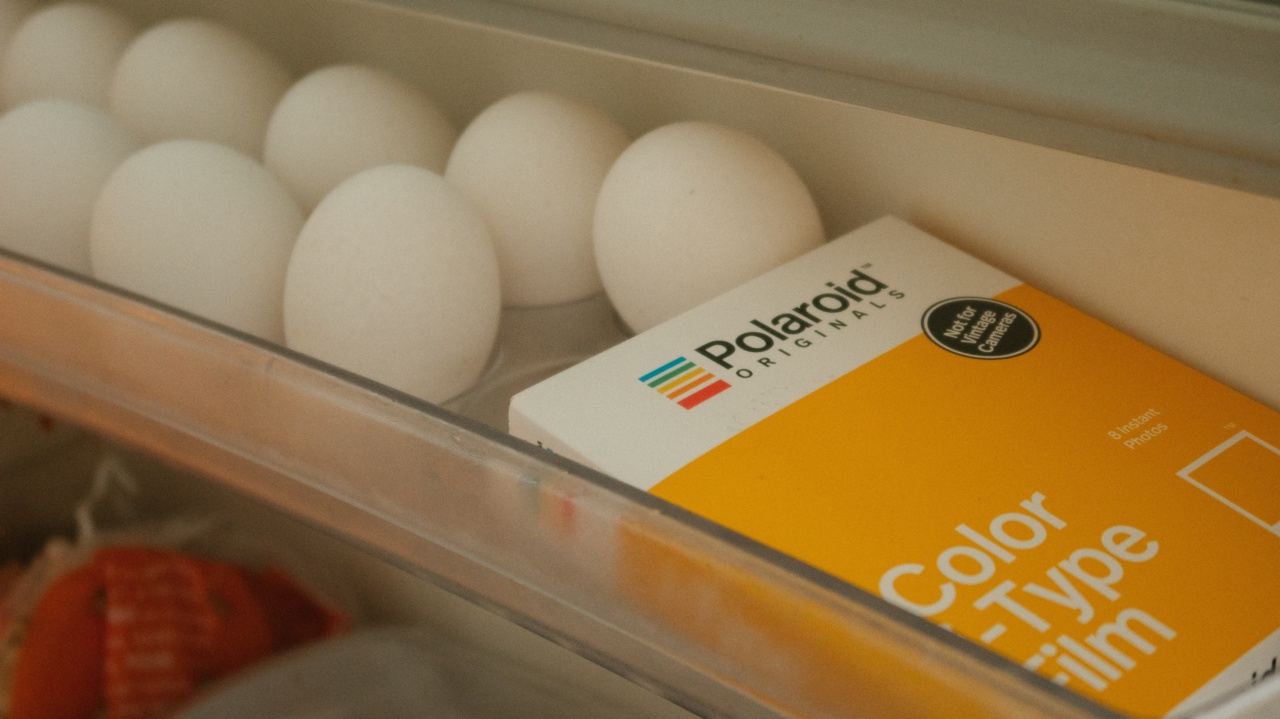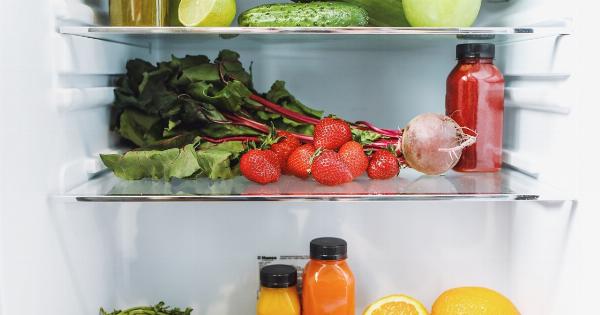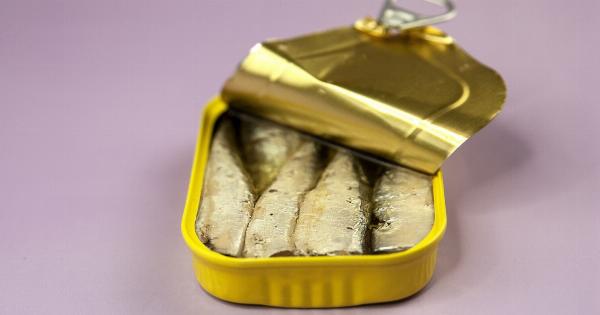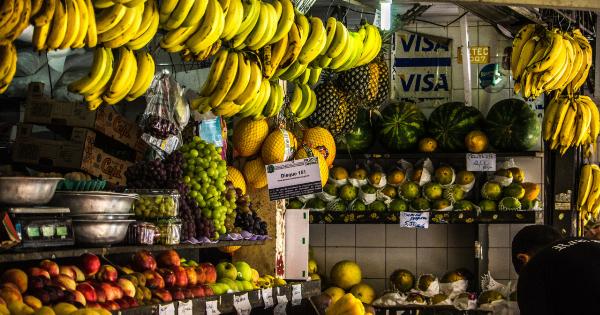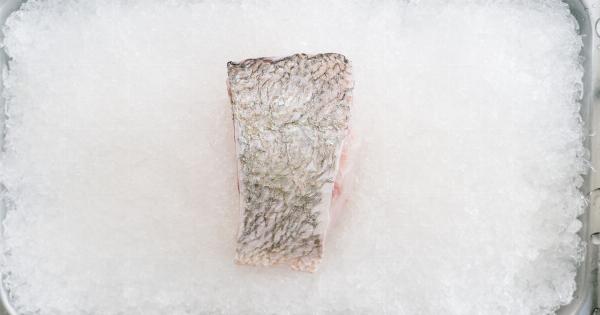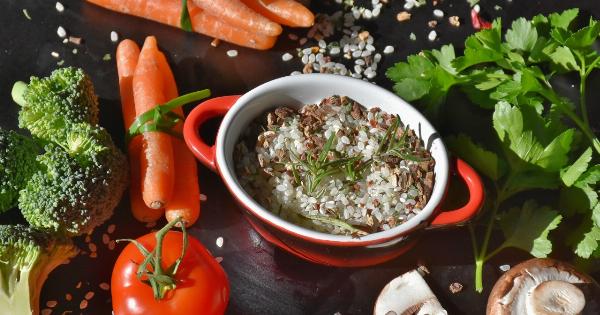If you want to keep your food fresh for as long as possible, proper fridge organization is key. An organized fridge will help you see what you have on hand, prevent food waste, and save you both time and money.
Here are 30 tips for organizing your fridge for optimal food freshness:.
1. Keep your fridge at the right temperature
Make sure your fridge is set to the right temperature. It should be between 35 and 38 degrees Fahrenheit (1.6 and 3.3 degrees Celsius) to keep your food fresh for as long as possible.
Use a thermometer to check the temperature and adjust the settings if necessary.
2. Start with a clean fridge
Before you begin organizing your fridge, give it a good clean. Remove all of the food and shelves, and clean the interior with warm soapy water. This will help keep your food fresh, prevent cross-contamination, and improve air circulation in your fridge.
3. Use clear containers
Use clear containers to store your food in your fridge. This will help you see what you have on hand and prevent you from forgetting about food that may be going bad. Clear containers also make it easier to stack and organize your fridge.
4. Label your containers
Label your containers with the date that you stored the food. This will help you keep track of how long the food has been in your fridge and prevent you from eating food that may have gone bad.
5. Use the crisper drawers for produce
Most fridges come with two crisper drawers, which are designed to keep your produce fresh. Use these drawers to store your fruits and vegetables, and adjust the humidity settings if necessary.
6. Store meat on the bottom shelf
Store your meat on the bottom shelf of your fridge. This will prevent any juices from dripping onto your other food and potentially contaminating it.
7. Use a separate container for raw meat
Store your raw meat in a separate container to prevent cross-contamination. This will also make it easier to clean up any spills.
8. Store dairy products in the back of the fridge
Dairy products should be stored in the back of the fridge where it’s the coldest. This will help them stay fresh for longer.
9. Freeze your bread
If you’re not going to eat your bread within a few days, freeze it. This will help it stay fresh for longer and prevent it from going stale.
10. Store eggs in their original carton
Store your eggs in their original carton. This will help protect them from damage and prevent any odors from permeating them.
11. Keep your fridge organized
Organize your fridge in a way that makes sense to you. Keep similar items together, and store the food that you use most often at the front of the fridge.
12. Use fridge organizers
Use fridge organizers to maximize your fridge space. There are many different types of organizers available, including egg holders, can dispensers, and wine racks.
13. Keep your fridge well-stocked
Keep your fridge well-stocked, but not overcrowded. This will help improve air circulation and keep your food fresh for longer.
14. Use the door shelves for condiments
Use the door shelves of your fridge for condiments, jars, and bottles. These items don’t need to be kept as cold as the rest of your food, so they’re perfect for the door shelves.
15. Store herbs in water
Store your fresh herbs in a glass of water and cover them with a plastic bag. This will help them stay fresh for longer.
16. Keep your fridge free of odors
Keep your fridge free of odors by regularly cleaning it and using baking soda to absorb any odors.
17. Use a lazy susan
Use a lazy susan to store your condiments and jars. This will make it easier to see what you have on hand and prevent items from getting lost in the back of the fridge.
18. Store leftovers in clear containers
Store your leftovers in clear containers so you can see what you have on hand. This will prevent you from forgetting about food that may be going bad.
19. Keep your fridge organized by zones
Organize your fridge by zones. For example, keep your dairy products in one zone, your produce in another, and your meats in another. This will make it easier to find what you’re looking for.
20. Use drawer dividers
Use drawer dividers to organize your crisper drawers. This will help you keep your fruits and vegetables separate and prevent them from getting mixed up.
21. Store your cheese properly
Store your cheese properly. Hard cheeses should be wrapped in wax paper and stored in the cheese drawer, while soft cheeses should be wrapped in plastic wrap and stored in the deli drawer.
22. Use smaller containers
Use smaller containers to store your food in your fridge. This will help you keep your fridge organized and prevent any food waste.
23. Keep your fridge closed
Keep your fridge closed as much as possible to prevent the cold air from escaping. This will help keep your food fresh for longer and save energy.
24. Use a vacuum sealer
Use a vacuum sealer to seal your food in bags. This will remove any air and help your food stay fresh for longer.
25. Don’t overpack your fridge
Don’t overpack your fridge. This will prevent the air from circulating and may cause your food to spoil.
26. Store your deli meats properly
Store your deli meats properly. They should be wrapped tightly in plastic wrap and stored in the deli drawer.
27. Use the top shelf for leftovers
Use the top shelf of your fridge for your leftovers. This will make it easier to see what you have on hand and ensure that you eat them before they go bad.
28. Use a fridge thermometer
Use a fridge thermometer to check the temperature of your fridge. This will help you ensure that your food is being stored at the right temperature.
29. Keep your fridge door closed during a power outage
Keep your fridge door closed during a power outage to prevent your food from spoiling. Your fridge will keep your food cold for up to four hours with the door closed.
30. Rotate your food
Rotate your food in your fridge to ensure that you’re using the oldest items first. This will prevent any food waste and ensure that you’re getting the most out of your groceries.
